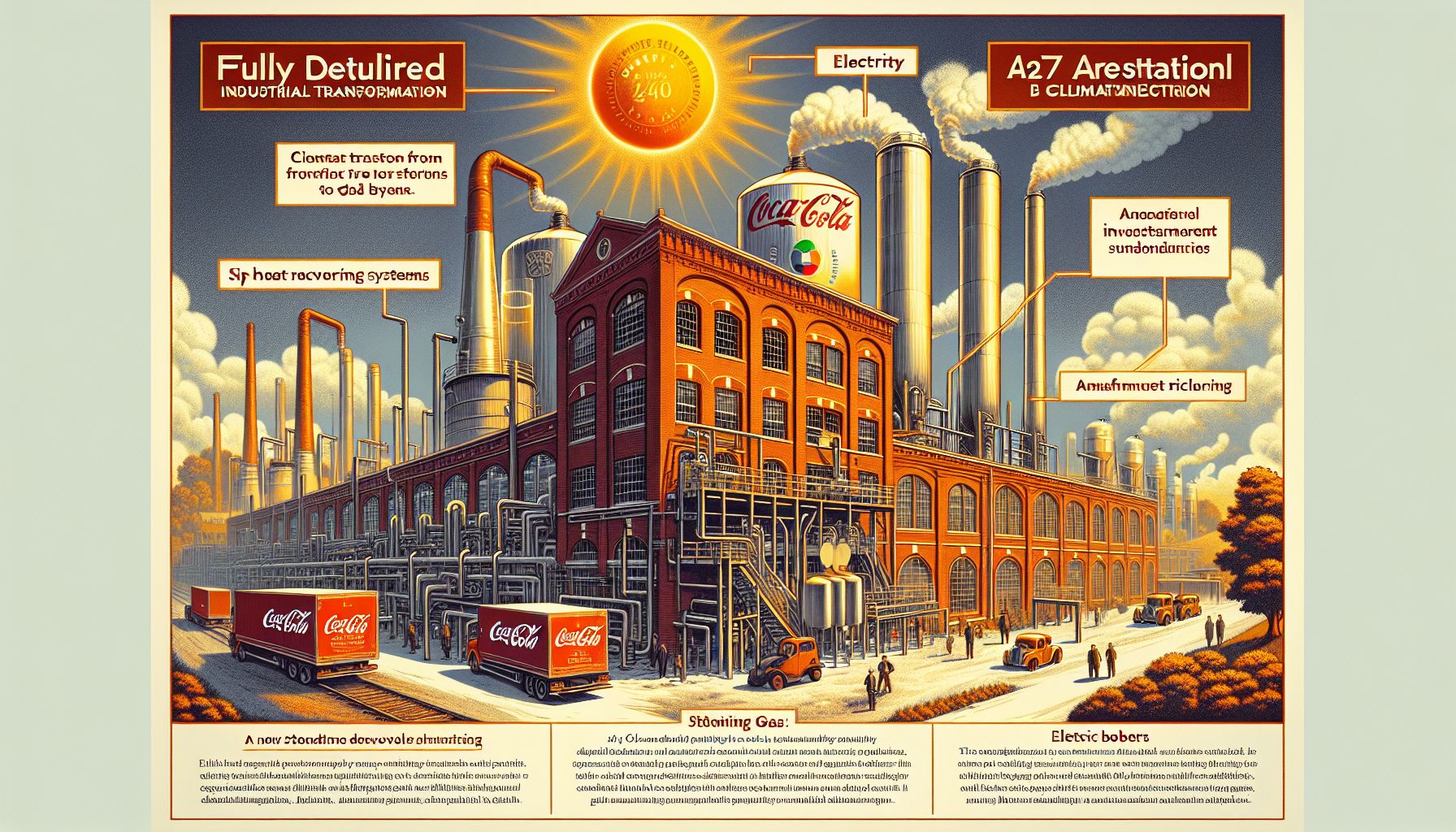Coca-Cola's Dutch Plant Makes Historic Switch from Gas to Electric Power

Dongen, Monday, 25 November 2024.
In a groundbreaking industrial transformation, Coca-Cola’s 66-year-old Dongen facility is transitioning from gas to electricity, marking one of Europe’s most significant manufacturing sustainability projects. Despite operating 24/7, the plant is implementing innovative heat recovery systems and electric boilers, demonstrating that even legacy facilities can embrace green energy solutions. This pioneering project, supported by climate investment subsidies, sets a new benchmark for industrial decarbonization in Europe’s food and beverage sector.
A Closer Look at the Transition
The Coca-Cola facility in Dongen, Netherlands, is undergoing a substantial energy overhaul, replacing gas-powered systems with electric alternatives. Central to this transition is the installation of two large electric boilers (e-boilers) and a heat recovery system, aimed at maximizing energy efficiency. Eva Amsterdam, the sustainability manager at Coca-Cola Europacific Partners, emphasized the complexity of this transition in a facility originally designed for gas. The shift to electric power is not a simple one-for-one replacement but involves a comprehensive reevaluation of the factory’s entire energy infrastructure.
Sustainability at the Core
A crucial element of this transition is Coca-Cola’s focus on reusing residual heat within the factory, reducing the overall energy demand. The project also includes the development of a hot water network, further enhancing energy efficiency. The plant’s transition is supported by the Versnelde Klimaatinvesteringen Industrie (VEKI) subsidy, which encourages CO2-reducing measures in the industrial sector. This initiative underlines the Dutch government’s commitment to fostering sustainable industrial practices[1].
Challenges and Future Prospects
One of the significant challenges in this transformation is adapting a 66-year-old facility to modern energy solutions. While current net congestion has not yet presented a problem, future expansions, such as electrifying the factory’s truck fleet, could face logistical hurdles. Amsterdam acknowledges that these changes will take time, as the factory was originally designed around gas use. However, the plant’s ongoing adjustments are essential steps towards achieving a more sustainable operational model[1].
Implications for the Broader Industry
The transition at Coca-Cola’s Dongen facility aligns with broader European Union goals to increase renewable energy use and decrease reliance on fossil fuels. The EU has set ambitious targets for renewable energy, aiming for it to constitute 42.5% of energy use by 2030, highlighting the importance of projects like Coca-Cola’s in achieving these objectives[2][3]. The Dongen plant’s efforts are a testament to how large-scale industrial facilities can contribute to the EU’s renewable energy and decarbonization goals, setting an example for similar initiatives across the continent.

